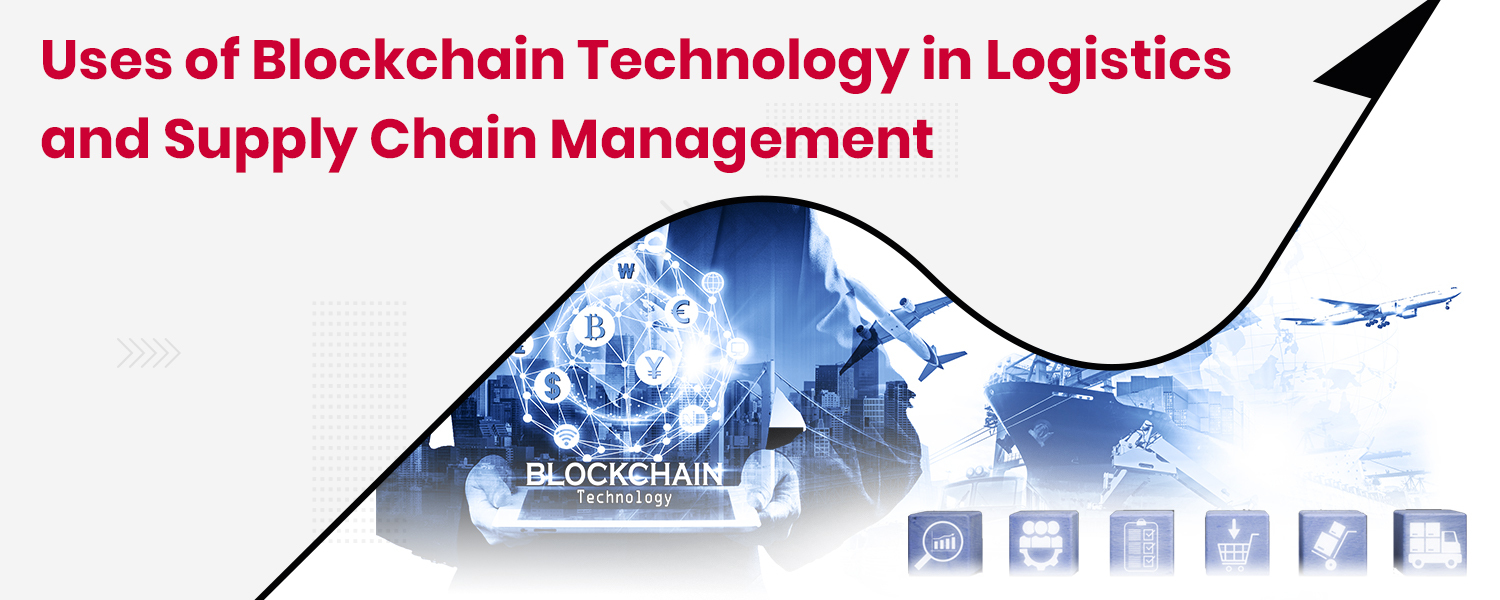In an age where the global economy hinges on the seamless flow of goods across borders, the logistics and supply chain management (SCM) sector faces a paradox of growing complexity amidst the quest for simplicity.
Traditional SCM practices are riddled with inefficiencies and vulnerabilities, but amidst this backdrop, technology like blockchain and AI in supply chain management redefines the very fabric of logistics.
This blog post explains the value of Blockchain in logistics and supply chain management, laying the groundwork for a comprehensive understanding of its revolutionary impact.
The Role of Blockchain in Logistics and Supply Chain Management
Blockchain technology has garnered attention far beyond its cryptocurrency origins. At its core is a decentralised ledger system. Unlike traditional databases managed by a central authority, blockchain distributes its data across a network of computers, ensuring no single point of failure can compromise the integrity of the data.
The importance of transparency and trust in SCM cannot be overstated. In a sector where goods move through numerous hands—from manufacturers to distributors, retailers, and finally to consumers—the ability to track and verify the journey of each item is invaluable. Blockchain facilitates this aspect magnificently. Providing a tamper-proof, immutable record of every transaction ensures that every stakeholder in the supply chain can trust the data they are seeing. This transparency builds trust and significantly reduces the time and cost associated with verifying the authenticity and origin of goods.
Use Cases of Blockchain in Logistics and Supply Chain Management
Inventory Management
Blockchain technology offers a robust solution with its real-time tracking and management capabilities. By leveraging blockchain, companies can achieve a granular level of visibility into their inventory levels across the entire supply chain. This real-time data stream reduces costs by minimising excess stock and storage needs and addresses discrepancies more efficiently, optimising overall supply chain operations. The decentralised nature of blockchain ensures that inventory data is accessible and verifiable by all stakeholders, fostering a collaborative and efficient inventory management environment.
Product Authentication and Verification
The scourge of counterfeiting poses a significant threat to global supply chains, eroding brand trust and consumer safety. Blockchain emerges as a formidable ally in this battle, offering a secure and immutable ledger for recording the origins and movements of products. Each product can be assigned a unique digital identifier that travels through the supply chain, allowing stakeholders to verify its authenticity at any point. This system deters counterfeiting and also enhances consumer confidence by providing transparent access to product histories.
Better Quality Control
Maintaining high-quality standards is paramount in SCM, where the cost of defective products can be steep, both financially and in terms of brand reputation. Blockchain technology facilitates the meticulous tracking of product quality from manufacturing to delivery. It allows for identifying and removing defective products at any stage of the supply chain, significantly reducing waste and enhancing customer satisfaction. This capability is especially crucial in industries such as pharmaceuticals and food, where quality directly impacts consumer health and safety.
Enhanced Shipping
With their intricacies of customs processes and paperwork, global shipping operations stand to gain significantly from blockchain’s streamlined approach. Blockchain can dramatically reduce paperwork and administrative overhead by digitising and automating documentation and using smart contracts for transactions. This efficiency speeds up shipping processes and improves coordination among the different parties involved in logistics, from shippers to customs officials. The result is a smoother, faster, and less costly shipping operation that can adapt more readily to the complexities of global trade.
Sustainable Sourcing of Materials
In an era where consumers increasingly demand transparency about the products they buy, blockchain provides a compelling answer to the call for ethical and sustainable sourcing. By tracking the journey of raw materials from source to store, blockchain technology offers unparalleled transparency into the supply chain. Consumers can verify that their products are ethically sourced, free from child labor, and environmentally sustainable. This level of traceability not only empowers consumers to make informed choices but encourages companies to uphold ethical sourcing standards, fostering a more responsible global supply chain.
Conclusion
As we stand on the brink of this technological renaissance, the opportunity for eCommerce businesses to lead the charge in shaping a more transparent, efficient, and sustainable global supply chain is immense. NimbusPost brings similar opportunities for your business, which can fastrack custom clearance with our tech-driven platform. We leverage AI in logistics to enable real-time tracking, courier recommendations, faster delivery, and reduced shipping costs.
Therefore, the time to act is to explore, adapt, and innovate with NimbusPost, paving the way for a future.
FAQs
How to implement blockchain in the supply chain?
Here are some steps to implement blockchain in business:
- Identify a use case
- Develop a proof of concept (PoC)
- Choose a blockchain platform
- Build and test blockchain solution
- Network operation
- Blockchain deployment
What are the benefits of blockchain in shipping?
Blockchain has many benefits for the shipping, including:
- Blockchain can reduce the number of manual transactions required in transportation logistics. This can lead to faster delivery times, saving money.
- Blockchain can improve communication and transparency. It can also help with faster data verification logistics and scheduling.
- Blockchain can reduce paperwork and errors, reducing overhead and transaction costs.
- Blockchain can amplify security and make documents safe and secure. This can help save on courier costs and prevent documents from getting lost.
- Blockchain can help with supply chain traceability and provenance. It can also help track cargo easily and in real time.




